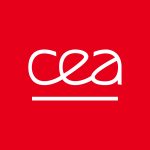The next deadline for standard proposal submission will be Monday 16 September 2024 (midnight, central European time).
Proposal submission guidelines HERE
Proposal writing hints HERE
If you are submitting a proposal for the first time please consult ourNew User page and contact an ILL scientist or the User Office.
Proposals must be submitted via the Electronic Proposal Submission (EPS) system on our User Club, once you have logged in with your personal username and password.
In case of problems, you will receive full support from the User Club team ().
Please allow sufficient time for any unforeseen computing hitches.
Read the detailed information: https://www.ill.eu/users/applying-for-beamtime/proposal-submission
Easy Access requests for short measurements and DDT requests for full experiments to be performed as soon as possible can be submitted at any time.
Beamtime allocation policy: « two-thirds rule »
Proposals from non-member country proposers will only be guaranteed a chance of acceptance if they are part of a collaboration with at least two-thirds of the proposers coming from one of the Associate or Scientific Member Countries of the ILL. ILL scientists listed as co-proposers are not taken into account in the calculation. Not satisfying this rule will not be a blocking condition for proposal submissions: proposals not fulfilling the 2/3 can still be allocated time, but then from Directors discretion time. These proposals should still be reviewed by the subcommittees and they have to be truly world class and addressing hot-topics (judged by the subcommittees and the science director).
Please note that Belgian scientific membership has not been renewed and hence Belgian users will only be eligible for beamtime in this proposal round through collaborations that meet the 2/3 rule.
Panel meetings: 13-14 November 2024 (Wednesday, Thursday)
Scheduling period: From April 2025
Next deadline: 15 February 2025
News on instruments
The ILL is at its highest performance level ever. The completion of the Endurance upgrade programme in 2024 consolidates the institute’s position as a world leader in neutron sciences, with order-of-magnitude improvements in performance resulting from increases in count rate, reduction in background, extended Q ranges, new sample environments, and new data treatment software.
In particular, this round:
– The CRG instrument SAM is now available as the fourth SANS instrument at the ILL.
-The newly upgraded D11+ and PANTHER, are now back in operation.
Research involving industry
ILL has been looking closely at research involving industry within the user programme. This is increasing and there are more ILL publications having industry co-authors. This is a positive trend that we encourage. Industry is welcome to apply for free access through the user programme provided that the experimental results are openly published. They can also apply in collaboration with an academia partner. Proprietary beam time can be arranged at any time for which the industry group should be contacted ().
Please be aware of these new requirements when writing your proposal:
1. Supervisors of PhD students who submit proposals must demonstrate their involvement in the project by being listed as proposers and actively participating in the experiment.
2. In your scientific explanation, it would be helpful to add a brief section outlining the roles and responsibilities of each person participating in the proposal or experiment.
3. We remind you that – for multi-instruments proposals – you should make sure that the scientific case, experimental plan and time requested is sufficiently detailed for each instrument. If the available space is not enough, consider submitting different proposals for different instruments.
Last but not least : To ensure the best possible outcomes, we strongly encourage you to reach out to our facility scientist before finalising and submitting your proposal. Engaging with our facility scientist can significantly enhance the clarity and feasibility of your project, especially in cases where technically challenging or complex set-ups are involved. This collaboration will not only refine your proposal but also increase its chances of success.


